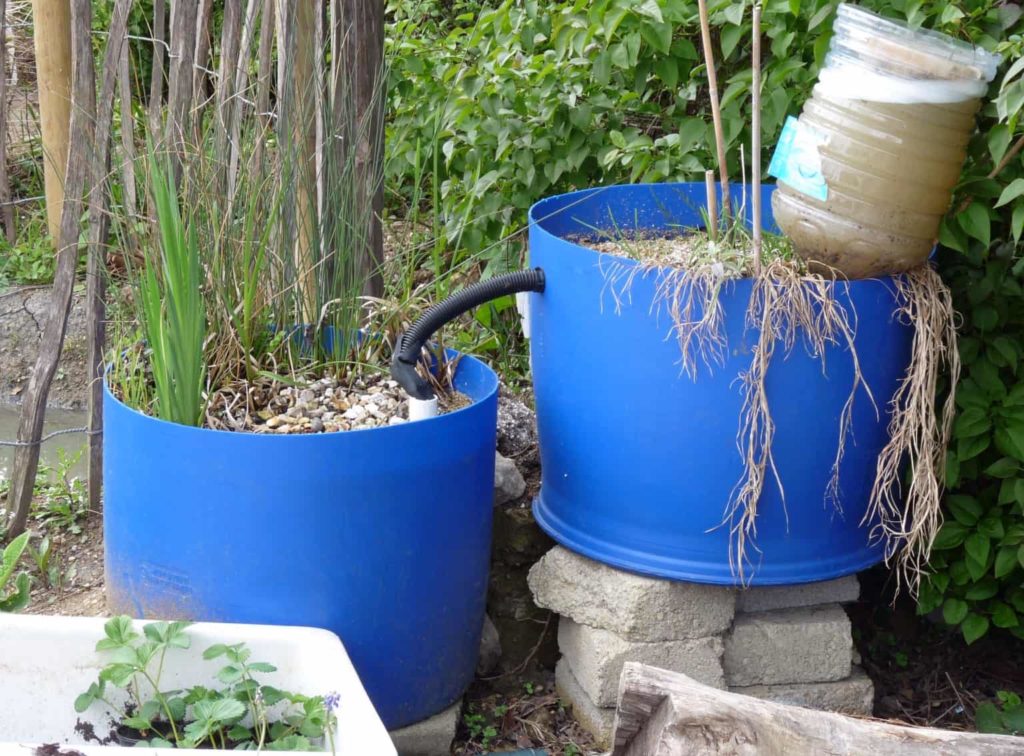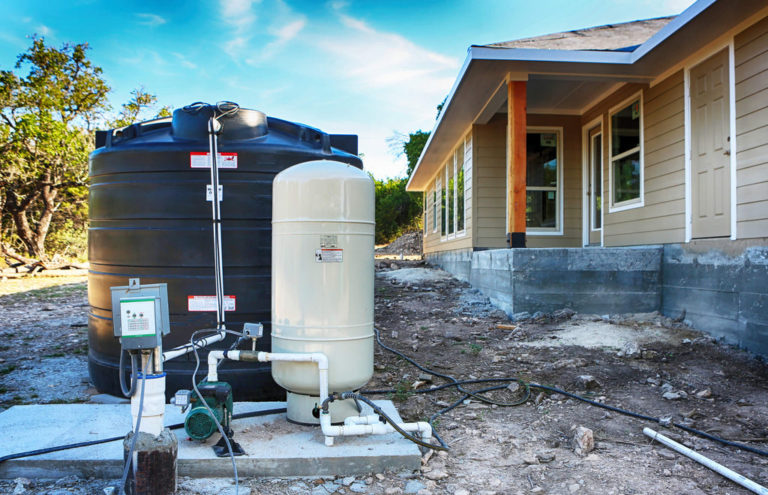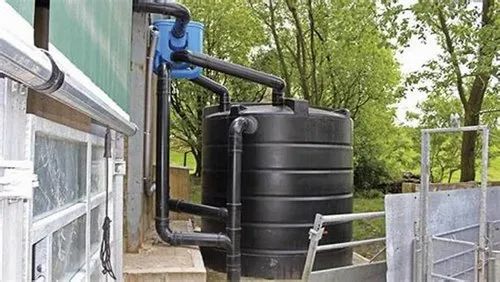Growing your own food without relying on municipal water supplies can be a sustainable and cost-effective way to live off the grid.
One way to make your off-grid garden more efficient is by utilizing greywater, which is the wastewater generated from sinks, showers, and washing machines that contains nutrients and organic matter that can benefit plants.
We’ll explore the best plants for growing with greywater in off-grid gardens, including leafy greens, herbs, fruit trees, and more.
By choosing these hardy, drought-tolerant plants and incorporating them into your greywater system, you can create a thriving garden that’s both productive and sustainable.
So let’s dive in and explore the world of off-grid gardens using greywater!
Native plants
Choose plants that are native to your region, as they are more likely to thrive on greywater and require less maintenance.
These plants have evolved over time to thrive in the specific conditions of your region, which means they will require less maintenance and care compared to non-native plants.
By choosing plants that are native to your area, you can ensure that they will be more drought-tolerant and better able to withstand the heat and other environmental factors in your region.
Native plants will attract local wildlife, such as bees and butterflies, which can increase biodiversity and help to pollinate the plants.
This will result in a more resilient and self-sustaining ecosystem, and reduce the need for chemical pesticides and fertilizers.
Some examples of native plants that are well-suited to greywater irrigation include milkweed, lavender, and succulents.
By incorporating these plants into your garden, you can create a low-maintenance, eco-friendly landscape that is both beautiful and functional.
Nitrogen-fixing plants
Incorporate nitrogen-fixing plants like beans, peas, and clover to enrich the soil and reduce the need for synthetic fertilizers.
Nitrogen-fixing plants like beans, peas, and clover are an excellent addition to your garden, as they have the unique ability to convert atmospheric nitrogen into a form that is usable by plants.
This process, known as nitrogen fixation, enriches the soil and reduces the need for synthetic fertilizers.
By incorporating these plants into your garden, you can improve the soil’s fertility and structure, leading to healthier and more productive plants.
In addition, these plants also provide an abundance of nutrients, such as protein, fiber, and vitamins, which can be harvested and used as a nutritious food source.
Furthermore, the legume family, which includes beans, peas, and clover, are known to host a diverse array of beneficial microorganisms, such as bacteria and fungi, that can help to break down organic matter and recycle nutrients.
By incorporating nitrogen-fixing plants into your garden, you can create a more sustainable and self-sufficient food system, while also improving the overall health and productivity of your soil.
Water-loving plants
Select plants that thrive in moist environments, such as waterlilies, lotus, and papyrus. These plants can tolerate temporary flooding and will help purify the greywater.
When it comes to selecting plants for a greywater reuse system, it’s essential to choose plants that thrive in moist environments.
Waterlilies, lotus, and papyrus are excellent examples of water-loving plants that can tolerate temporary flooding and help purify the greywater.
These plants have adapted to living in wet conditions and can survive and even thrive in environments with varying levels of moisture.
For instance, waterlilies can grow in water up to 15 feet deep, while lotus can grow in water up to 3 feet deep.
Papyrus, on the other hand, can grow in water up to 6 inches deep.
These plants can not only purify the greywater but also provide aesthetic value to your landscape.
They also require minimal maintenance and can tolerate partial shade to full sun conditions.
These plants can help to reduce the amount of nutrients and contaminants in the greywater, making it safer for use in irrigation and other non-potable applications.
By incorporating water-loving plants into your greywater reuse system, you can create a sustainable and eco-friendly landscape that benefits both the environment and your wallet.
Edible plants
Grow edible plants like tomatoes, peppers, and cucumbers, which can benefit from the nutrient-rich greywater.
Growing edible plants like tomatoes, peppers, and cucumbers in greywater can provide numerous benefits.
Greywater, which is the wastewater generated from sinks, showers, and washing machines, is rich in nutrients such as nitrogen, phosphorus, and potassium that are essential for plant growth.
By utilizing this resource, you can reduce your water footprint and provide a sustainable source of nutrients for your crops.
Greywater is cooler than tap water, which can help prevent overheating and promote healthy root growth.
The natural organic matter present in greywater also acts as a fertilizer, further enriching the soil and promoting a thriving ecosystem.
By adopting this practice, you can not only reduce your water usage but also improve the health and yield of your edible plants.
Aromatic herbs
Incorporate aromatic herbs like mint, oregano, and basil, which can help repel pests and improve the quality of the greywater.
Incorporating aromatic herbs like mint, oregano, and basil in your greywater system can provide numerous benefits.
These herbs not only add a pleasant aroma to the water, but they also have natural pest-repelling properties that can help deter mosquitoes, fungus gnats, and other pests that can be attracted to the water.
For example, mint has a known repellent effect on mosquitoes, while oregano and basil have antifungal properties that can help prevent the growth of harmful fungi in the water.
These herbs can help improve the overall quality of the greywater by adding nutrients and improving the water’s chemical properties, which can result in healthier and more resilient plants.
By incorporating aromatic herbs in your greywater system, you can create a more sustainable and healthy water management system for your home or garden.
Comfrey
Comfrey is a nitrogen-fixing plant that can thrive in wet conditions and can be used as a mulch or compost ingredient to improve soil health.
Comfrey (Symphytum officinale) is a powerful ally in your garden, particularly if you have wet or waterlogged soil.
This nitrogen-fixing plant can thrive in these conditions and not only improves soil health but also provides an array of uses for the gardener.
As a mulch or compost ingredient, comfrey adds organic matter, nutrients, and beneficial microorganisms to the soil, enhancing its structure and fertility.
The plant’s deep taproots also help to break up compacted soil, increase drainage, and bring up nutrients from deeper layers.
Comfrey’s high nitrogen content means it can be used as a natural fertilizer, replacing synthetic alternatives and promoting the growth of healthy, vigorous plants.
By incorporating comfrey into your gardening routine, you’ll not only improve soil health but also create a more resilient and productive ecosystem.
Willows
Willows are deciduous trees that can tolerate wet conditions and can help filter out contaminants from the greywater.
Willows are a prime choice for greywater filtration due to their ability to tolerate wet conditions and their proven effectiveness in filtering out contaminants.
Deciduous willows have a unique root system that extends far beyond the tree’s canopy, forming a vast network of interconnected fine roots that can absorb and filter out pollutants from the greywater.
This extensive root system allows willows to capture and break down a wide range of contaminants, including suspended solids, bacteria, viruses, and other harmful substances.
Willows are able to thrive in wet conditions, making them an ideal choice for areas with high water tables or frequent flooding.
By incorporating willows into your greywater filtration system, you can be assured that your water is being purified to the highest standard, making it safe for irrigation and other non-potable uses.
Bamboo
Bamboo is a versatile, fast-growing plant that can help purify the greywater and provide structure for your off-grid garden.
Bamboo is an incredibly versatile and fast-growing plant that can play a vital role in your off-grid garden.
Not only does it help purify greywater through its extensive root system, but it also provides structural support for your garden.
Bamboo has an impressive ability to filter out impurities and pollutants from the water, making it an excellent choice for use in greywater systems.
Bamboo’s dense network of rhizomes and roots help to break down organic matter and aerate the soil, improving its overall health and fertility.
Moreover, bamboo is a highly renewable resource that can be easily propagated and maintained, making it an eco-friendly and sustainable option for gardeners.
By incorporating bamboo into your off-grid garden, you can not only purify your greywater but also create a structurally sound and environmentally conscious garden.
Want More? Dive Deeper Here!
Hey there! If you’re the type who loves going down the rabbit hole of information (like we do), you’re in the right spot. We’ve pulled together some cool reads and resources that dive a bit deeper into the stuff we chat about on our site. Whether you’re just killing time or super into the topic, these picks might just be what you’re looking for. Happy reading!






